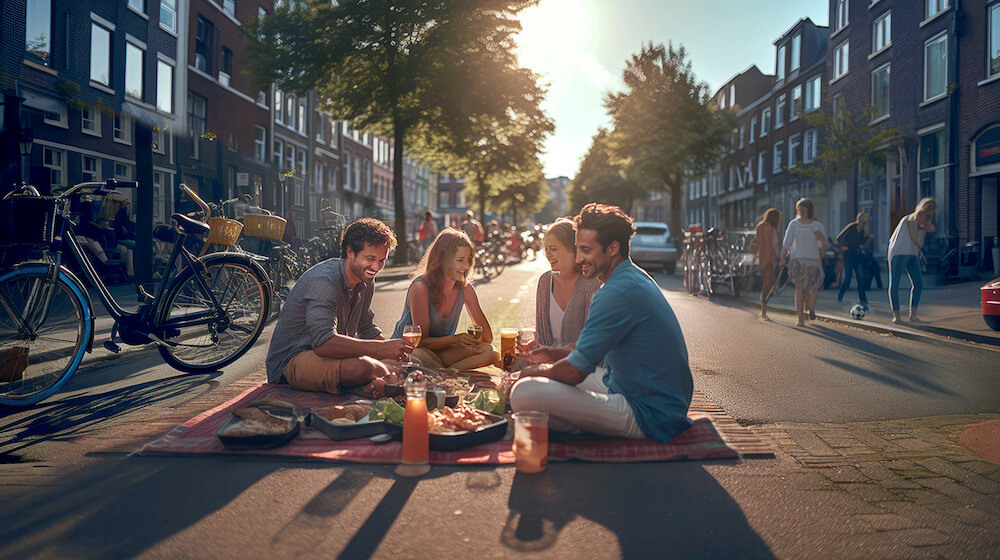For three months beginning in November 1973, the Dutch government prohibited private motor vehicles from driving on Sundays. The measure aimed to reduce oil consumption during the OPEC energy crisis, and it allowed citizens to roller-skate, picnic and cycle on the nation's highways. Now, half a century later and amid a far more consequential fossil fuel-related crisis, Dutch bike subscription service Swapfiets is urging authorities to reinstate Sunday bans.
Swapfiets sent letters to the city councils of Amsterdam, Rotterdam and The Hague, advocating for the reintroduction of car-free Sundays once a month. The scaleup is encouraging local politicians to adopt a long-term perspective and implement no-car days as a means to decrease pollution, reduce emissions and improve air quality. To help council members imagine what they could accomplish, Swapfiets employed AI to recreate photos from 1973 and envision what car-free Sundays would look like today.
For the occasion of World Car-Free Day (September 22nd), Swapfiets also polled 2,000 Brits on which city they thought would be the world's first to go car-less and when. The consensus? London, by 2050. Using survey replies on what the UK's capital and other major European cities would look like if cars were swapped for bikes, AI artists generated images of London, Amsterdam, Copenhagen, Paris and Berlin showing fewer roads, more green spaces and more street dining.

Trend Bite
Join 100,000+ future-focused professionals in 180 countries already receiving our free trend updates.
Select your country